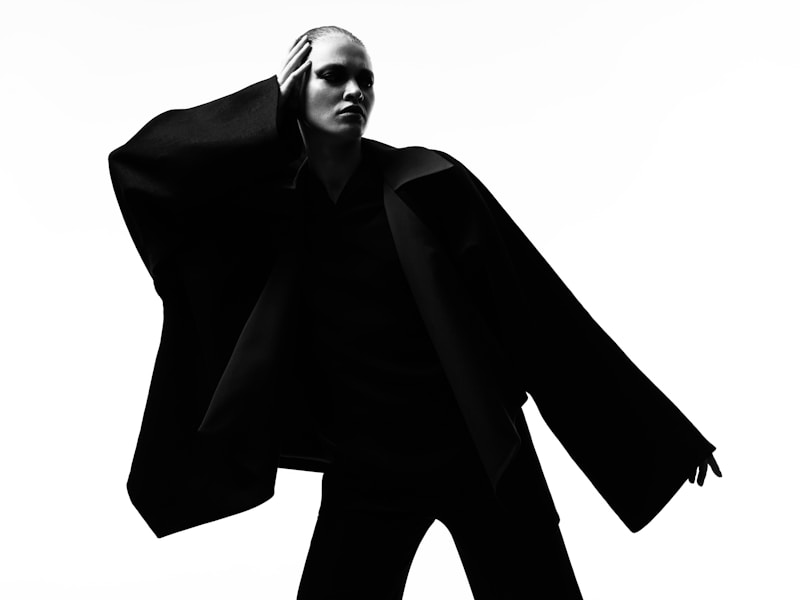The Ultimate Guide to Couture Dress Fabrics: Elevate Your Fashion Game
The Ultimate Guide to Couture Dress Fabrics: Elevate Your Fashion Game
Introduction to Couture Dress Fabrics
Couture dress fabrics represent the pinnacle of luxury in the fashion industry. These materials not only determine the quality and look of a couture dress but also play a crucial role in its feel and drape. In this comprehensive guide, we will explore the various types of couture dress fabrics, their unique properties, and how to choose the perfect one for your next couture creation.
Why Choose Couture Dress Fabrics?
Choosing the right fabric is fundamental in couture fashion. Couture dress fabrics are often handcrafted and of the highest quality, ensuring that garments are not only stunning but also durable. Here are a few reasons why opting for couture dress fabrics is beneficial:
- Quality: Couture fabrics are made from premium materials, ensuring longevity and a luxurious feel.
- Unique Designs: Many couture houses offer exclusive fabrics, allowing for one-of-a-kind designs.
- Expert Craftsmanship: These fabrics are often woven or embroidered with intricate details, enhancing the garment's overall aesthetic.
Types of Couture Dress Fabrics
| Fabric Type | Characteristics | Examples |
| Silk | Luxurious, smooth, and has a natural sheen. | Charmeuse, chiffon, and organza. |
| Velvet | Soft, plush texture with a rich appearance. | Crushed velvet, stretch velvet, and silk velvet. |
| Lace | Delicate, intricate patterns, often sheer. | Chantilly lace, embroidered lace, and cotton lace. |
| Brocade | Heavy, decorative fabric featuring raised designs. | Jacquard brocade and metallic brocade. |
| Georgette | Lightweight, slightly crinkled, and flows beautifully. | Plain georgette, printed georgette, and chiffon georgette. |
Choosing the Right Couture Dress Fabric
When selecting a couture dress fabric, there are several key factors to consider:
1. Purpose of the Dress
Consider the event for which the dress is intended. For example, a wedding gown might require lighter fabrics like silk or tulle for a romantic feel, while an evening gown may benefit from the opulence of velvet or brocade.
2. Seasonality
The season during which the dress will be worn should also influence fabric choice. Lighter fabrics are ideal for summer, while heavier materials are better suited for winter.
3. Body Shape and Size
Different fabrics can enhance or minimize certain body features. Flowing fabrics can create a flattering silhouette, whereas structured fabrics may offer more support for specific designs.
Where to Source Couture Dress Fabrics
Finding high-quality couture dress fabrics can sometimes be a challenge. Here are some recommended sources for sourcing these luxurious materials:
- Designer Fabric Stores: Specialty stores often carry a selection of high-end materials.
- Online Retailers: Websites like Mood Fabrics and Fabric.com offer extensive collections of couture fabrics.
- Couture Houses: Direct purchases from couture fashion houses can yield unique fabrics not available elsewhere.

Care and Maintenance of Couture Dress Fabrics
Proper care and maintenance are essential to ensure longevity and appearance. Here are some important tips:
1. Dry Cleaning
Many couture fabrics, such as silk and lace, require dry cleaning to maintain their structure and color.
2. Avoid Direct Sunlight
Exposure to direct sunlight can cause fading, especially in lighter fabrics. Store dresses in dark, cool places when not in use.
3. Hand Washing
For delicate fabrics such as chiffon, a gentle hand wash may be appropriate, but always consult the care label first.
Common Questions About Couture Dress Fabrics
Below are some frequently asked questions regarding couture dress fabrics:
What types of fabrics are best for formal evening gowns?
Luxurious fabrics like silk satin, chiffon, and velvet are great options for formal evening gowns due to their elegant drape and rich textures.
Can I design my own fabric for a couture dress?
Yes, many couture designers collaborate with fabric manufacturers to create custom fabrics tailored specifically to their designs.
How do I know which color works best for my skin tone?
Consult a stylist or use online tools that help determine the best colors for your skin tone, considering the fabric's sheen and texture as well.
Conclusion
In summary, couture dress fabrics are foundational to crafting breathtaking garments that exude elegance and sophistication. By understanding the various types of fabrics available, how to choose them, and the best practices for care and maintenance, anyone can elevate their fashion game. Whether you're a designer or an avid fashionista, the right choice of couture dress fabric can create stunning pieces that make a statement. Always remember to assess your requirements, consult professionals when necessary, and enjoy the journey of fabric selection!
